#cherelle parker
Explore tagged Tumblr posts
Photo
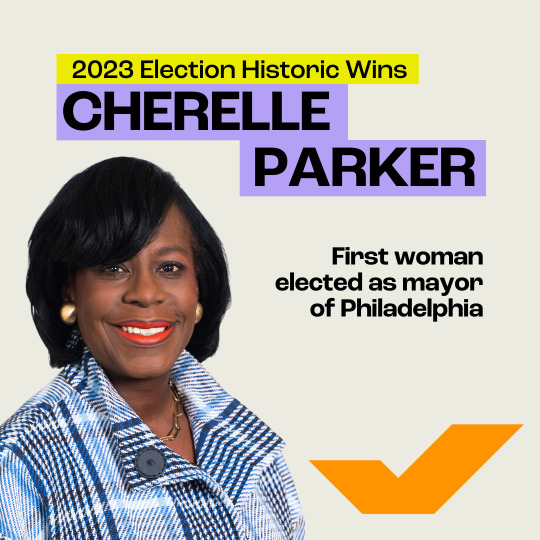

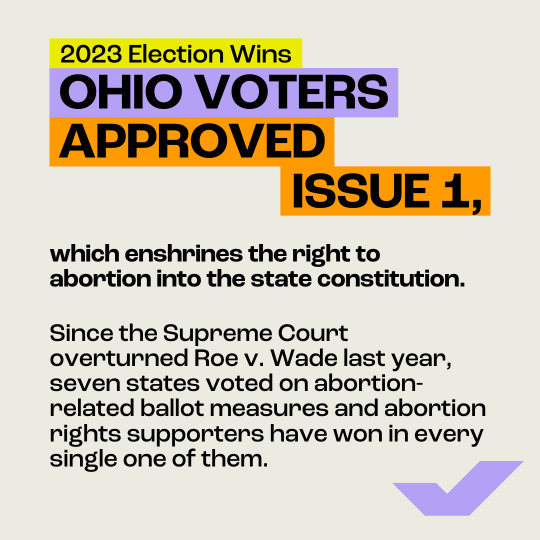


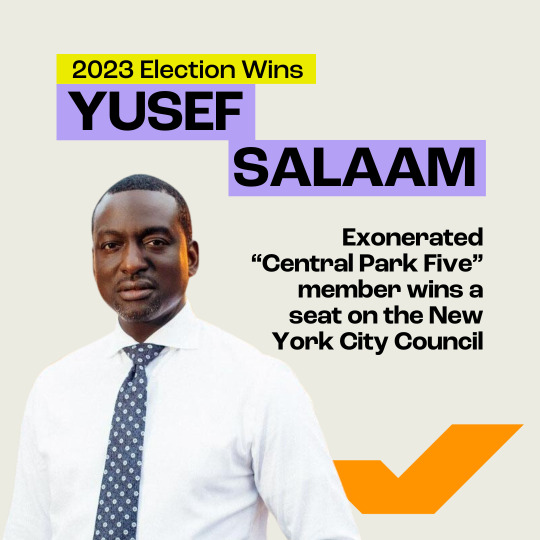

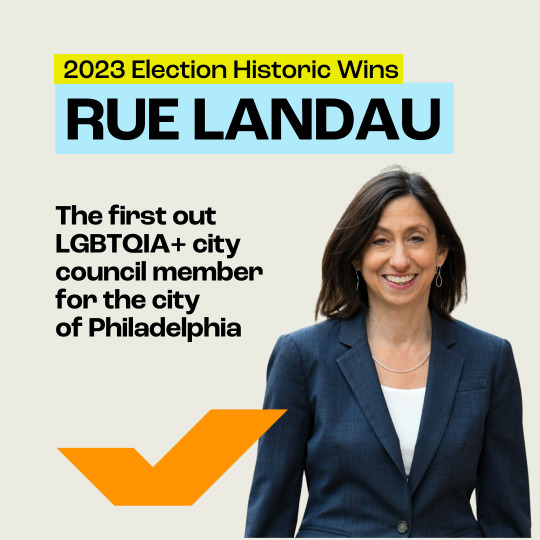
Just some of last night’s historic wins 🥳
#Election 2023#local elections#danica roem#cherelle parker#gabriel amo#yusef salaam#rozia henson#rue landau#ohio
397 notes
·
View notes
Link
Cherelle Parker won the Philadelphia Democratic primary for mayor, the Associated Press called the race Tuesday night.
3 notes
·
View notes
Text
youtube
#bad grammar#spelling errors#philadelphia eagles#Philadelphia mayor#cherelle#cherelle Parker#Youtube
0 notes
Text
Yet another "historic" community benefits agreement...this time in Chattanooga
In July, the Chattanooga Lookouts, a minor league baseball team, reached an agreement with the city to build a new ballpark. Although the price was originally going to be $79.5 million, the final price tag was actually $120 million. Not to worry, though, as the public contribution amount is capped at…$112 million? Anyway, ever since 2022, local groups in Chattanooga have been pressuring local…
#Anaheim#Anaheim Angels#Atlantic Yards#Bethlehem Center#Buffalo#Buffalo Bills#CALEB#CBA#Chattanooga#Chattanooga Lookouts#Cherelle Parker#Cincinnati#Community Benefits Agreement#Detroit#FC Cincinnati#Harry Sidhu#Ilitch#Kansas City#Kansas City Chiefs#Kansas City Royals#KSHB#Mark Squilla#Michigan#Minor League Baseball#MLB#MLS#NBA#New York#NFL#Orange County Register
0 notes
Text
#sanctuary city#mass deportations#trump#federal immigration authorities#immigrants#philadelphia mayor cherelle parker#district attorney larry krasner#new york mayor eric adams#democrats
1 note
·
View note
Text
"Research on a police diversion program implemented in 2014 shows a striking 91% reduction in in-school arrests over less than 10 years.
Across the United States, arrest rates for young people under age 18 have been declining for decades. However, the proportion of youth arrests associated with school incidents has increased.
According to the U.S. Department of Education, K–12 schools referred nearly 230,000 students to law enforcement during the school year that began in 2017. These referrals and the 54,321 reported school-based arrests that same year were mostly for minor misbehavior like marijuana possession, as opposed to more serious offenses like bringing a gun to school.
School-based arrests are one part of the school-to-prison pipeline, through which students—especially Black and Latine students and those with disabilities—are pushed out of their schools and into the legal system.
Getting caught up in the legal system has been linked to negative health, social, and academic outcomes, as well as increased risk for future arrest.
Given these negative consequences, public agencies in states like Connecticut, New York, and Pennsylvania have looked for ways to arrest fewer young people in schools. Philadelphia, in particular, has pioneered a successful effort to divert youth from the legal system.
Philadelphia Police School Diversion Program
In Philadelphia, police department leaders recognized that the city’s school district was its largest source of referrals for youth arrests. To address this issue, then–Deputy Police Commissioner Kevin Bethel developed and implemented a school-based, pre-arrest diversion initiative in partnership with the school district and the city’s department of human services. The program is called the Philadelphia Police School Diversion Program, and it officially launched in May 2014.
Mayor-elect Cherelle Parker named Bethel as her new police commissioner on Nov. 22, 2023.
Since the diversion program began, when police are called to schools in the city for offenses like marijuana possession or disorderly conduct, they cannot arrest the student involved if that student has no pending court case or history of adjudication. In juvenile court, an adjudication is similar to a conviction in criminal court.
Instead of being arrested, the diverted student remains in school, and school personnel decide how to respond to their behavior. For example, they might speak with the student, schedule a meeting with a parent, or suspend the student.
A social worker from the city also contacts the student’s family to arrange a home visit, where they assess youth and family needs. Then, the social worker makes referrals to no-cost community-based services. The student and their family choose whether to attend.
Our team—the Juvenile Justice Research and Reform Lab at Drexel University—evaluated the effectiveness of the diversion program as independent researchers not affiliated with the police department or school district. We published four research articles describing various ways the diversion program affected students, schools, and costs to the city.
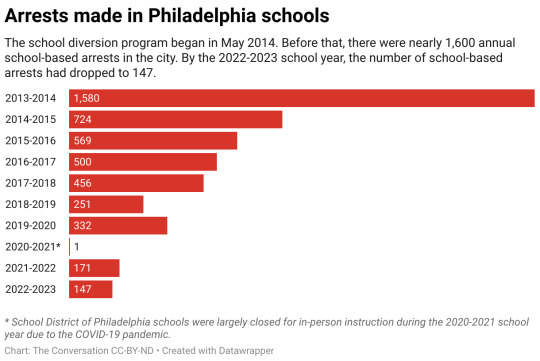
Arrests Dropped
In our evaluation of the diversion program’s first five years, we reported that the annual number of school-based arrests in Philadelphia decreased by 84%: from nearly 1,600 in the school year beginning in 2013 to just 251 arrests in the school year beginning in 2018.
Since then, school district data indicates the annual number of school-based arrests in Philadelphia has continued to decline—dropping to just 147 arrests in the school year that began in 2022. That’s a 91% reduction from the year before the program started.
We also investigated the number of serious behavioral incidents recorded in the school district in the program’s first five years. Those fell as well, suggesting that the diversion program effectively reduced school-based arrests without compromising school safety.
Additionally, data showed that city social workers successfully contacted the families of 74% of students diverted through the program during its first five years. Nearly 90% of these families accepted at least one referral to community-based programming, which includes services like academic support, job skill development, and behavioral health counseling...
Long-Term Outcomes
To evaluate a longer follow-up period, we compared the 427 students diverted in the program’s first year to the group of 531 students arrested before the program began. Results showed arrested students were significantly more likely to be arrested again in the following five years...
Finally, a cost-benefit analysis revealed that the program saves taxpayers millions of dollars.
Based on its success in Philadelphia, several other cities and counties across Pennsylvania have begun replicating the Police School Diversion Program. These efforts could further contribute to a nationwide movement to safely keep kids in their communities and out of the legal system."
-via Yes! Magazine, December 5, 2023
#philedelphia#pennsylvania#united states#us politics#school#high school#school to prison pipeline#prison system#arrests#education#students#schools#good news#hope#rare case of police not completely sucking#police#policing#law enforcement
1K notes
·
View notes
Text

Congratulations, Cherelle Parker! 💙
234 notes
·
View notes
Text
Congratulations!!
102 notes
·
View notes
Text
Philadelphia Mayor Cherelle Parker fumbles Eagles chant: 'E-L-G-L-E-S! Eagles!'
youtube
***News said she was a high school English teacher in another life...
From the comments: Still need convincing that DEI needs to be thrown out the window?
7 notes
·
View notes
Link
1 note
·
View note
Text
Imagine this: It’s exactly one year from today, Memorial Day weekend, 2025. It’s 94 degrees in the shade, but the fact that the world keeps shattering monthly temperature records isn’t even making the news — and that’s not what has Philadelphians so hot and bothered. It’s been about two months since Donald Trump, the 47th president of the United States, announced Operation Purify America in an Oval Office address, and about a week since a stunned Philadelphia watched an endless convoy of militarized vehicles and federalized troops from the Texas and South Dakota National Guards roll up I-95. After a week of setting up a base camp at the Air National Guard base in Horsham, the actual operation began at midnight the day before, as a parade of Humvees and armored personal carriers cornered off a wide area in Philadelphia’s Hunting Park section and supported federal immigration agents who went door-to-door in the predawn chaos, bursting into homes and asking Latino residents for their papers. Journalists who’d been kept blocks away by the troops now search for anyone who could confirm the rumors of screaming, scuffling, and dozens of arrests. As the hot sun rises, Mayor Cherelle L. Parker, Gov. Josh Shapiro, and several hundred angry protesters gather outside the Horsham gate to denounce the raids. A phalanx of helmeted troops pushes the throng back, firing tear gas to clear the road for the first busload of detained migrants. They are bound for the hastily erected Camp Liberty, an already overcrowded and decrepit holding center on the Texas-Mexico border that Amnesty International calls “a concentration camp.” This might sound like a page from the script of Alex Garland’s next near-future dystopian movie, but it’s actually a realistic preview of the America Trump himself, his cartoonishly sinister immigration guru Stephen Miller, and the right-wing functionaries crafting the 900-page blueprint for a Trump 47 presidency called Project 2025 are fervently wishing for. As polls show Trump in a dead heat nationally with President Joe Biden, and poised to win at least some of the battleground states where Biden was victorious in 2020, the presumptive GOP nominee is making no secret of his scheme for what he calls “the Largest Domestic Deportation Operation in History.” The audacious goal of tracking down and deporting all 11 million or so undocumented immigrants living and working within the United States is, experts agree, all but impossible. But even the forced removal of hundreds of thousands, or one million, would require a massive internal military operation on a scale not seen since the Civil War and Reconstruction. [...] What’s changed in 2024? Everything. Despite the Hannibal Lecter-ized outward chaos of Trump’s rallies, behind the scenes, Team Trump is focused and determined not only to name the most rabid Trump loyalists to key political posts but also todramatically strip civil service protections andremove recalcitrant midlevel government employees. And this time around, Republicans in Congress are going to be on board with whatever Trump wants. [...] It was somewhat amazing to watch the furious debate online and on cable news this week over the weird incident in which small text about a “unified Reich” found its way into a Trump promo video the ex-and-wannabe president posted on Truth Social. The perplexing part, for me, is that this was discussed as some kind of Sherlock-Holmes-magnifying-glass a-ha moment, revealing Trump’s secret plan for Nazi-style rule. Folks, he is screaming his plan out loud at his rallies! The Trump deportation scheme is really Trump’s blueprint for dictatorship.
Will Bunch at The Philadelphia Inquirer on how Donald Trump's proposed deportation plan is a pretext for a fascist MAGA dictatorship (05.23.2024).
Will Bunch nails it in this Philly Inquirer column on how Donald Trump's fascistic plan for mass deportations is a speed-run for a MAGA dictatorship.
#Will Bunch#Concentration Camps#Opinion#The Philadelphia Inquirer#Donald Trump#Project 2025#Immigration#Insurrection Act#Economy
30 notes
·
View notes
Text

Meet me on broad Street
A philly sports fan? Well they’re just crazy! Unfortunately many people think we are nasty humans that just love to torture opposing teams fans, but other people may see a fan base that will go the extra mile for their team. Now I may be biased, but Philly sports fans are die hard! Sometimes it may be painful to be a fan when our teams lose, but when we win it’s a WIN! In 2017, Eagles fans stood out in the cold on New Year's Eve to watch a game against the Dallas Cowboys. This game did not go in Philadelphia’s favor, but this was the game that took us to the NFC playoffs, and later the Superbowl! After a big game, fans take themselves to the streets of Philadelphia where they later end up on Broad Street, this is a place where celebration begins.
This year on February 9th, the Eagles participated in their 4th Super Bowl down the bayou in New Orleans. Playing the Kansas City Chiefs, who were competing for their 3rd superbowl in a row, the Eagles were prepared to dominate. With the score of 40-22 the Philadelphia Eagles were now WORLD CHAMPIONS! You can only imagine what the city looked like, NBC 10 reporter Johnny Archer said “The most passionate fans in the country by far.” News stations all over were able to capture the flock of green, it was a very special moment for the city. Another thing Philly fans are infamous for is climbing the street poles.The Mayor of Philadelphia, Cherelle Parker told fans “Do not climb light poles, or anything else!” Fans of course had their comments towards that, but they proceeded to do it anyway. This time fans went the extra mile to even steal the light poles and pass them through crowds! As we take a further dive into this blog we will begin to talk about other Philly teams, their wins, and players' reactions about Philly sports fans.
5 notes
·
View notes
Text
Thousands of Philadelphia city employees are back in their offices full time after a judge rejected a union's request to block Mayor Cherelle Parker’s requirement that they return.
District Council 47 of the American Federation of State, County and Municipal Employees had sued the city, claiming the mandate violates its contract and would harm city workers. The union, which represents 6,000 administrative and supervisory employees, has also filed an unfair-practices complaint with the Pennsylvania Labor Relations Board, which is still pending.
A two-day hearing held last week on the lawsuit concluded when the judge ruled Friday night that the city could impose the mandate, so the workers had to return to the office Monday.
Parker announced the mandate in May, saying she wanted to create a more visible and accessible government. The decision ended the city’s virtual work policy, put in place in 2021, and essentially returns employee scheduling to what it was before the coronavirus pandemic.
About 80% of the city’s 26,000 employees have been working fully on site since last year, while the rest had worked on site 31 to 75 hours per pay period, Parker said. Former Mayor Jim Kenney had left hybrid work decisions up to department heads.
The union sharply criticized the decision when it was announced, saying it was unilaterally imposed instead of going through collective bargaining. It also believes the policy will worsen the worker shortage the city has suffered since the pandemic.
It also argues that the city lacks enough office space to bring all employees back and that making the change over the summer, when children are out of school, complicates schedules for parents.
Parker, a Democrat, has said her administration does not believe the new policy is subject to collective bargaining. She also noted changes that were made to be more worker friendly, such as extending paid parental leave from six to eight weeks and designating the Friday after Thanksgiving as a holiday. Officials have also said there will be relaxed restrictions on sick leave to care for family members.
Business leaders have welcomed the announcement, saying it will benefit workers and the vibrancy of Philadelphia’s downtown.
7 notes
·
View notes
Text

Feb162025
Nothing Is Possible When We Work Together
Philadelphia Mayor Cherelle Parker cannot spell the name of her city’s NFL champion football team, but she does make insightful remarks. She recently observed that nothing is possible when we work together:
Mayor Parker’s point is well taken. When Republicans try to work with Democrats, nothing is possible — unless you count wasteful spending and blundering into wars. Only by overcoming dogged Democrat resistance can great things be accomplished, like cleaning up waste and corruption through DOGE.
2 notes
·
View notes
Text

A medical transport plane crashed in a Philadelphia neighborhood, killing all six onboard—including a mother and her daughter—and one person in a car. At least 19 others were injured, and officials warn the toll may rise.
Mayor Cherelle Parker vowed to uncover the cause, calling it a "terrible tragedy." Governor Josh Shapiro emphasized ongoing rescue efforts. The plane was airborne for just a minute before crashing, with air traffic controllers unclear on what went wrong. Residents are urged to avoid debris and call 911 for assistance.
#general knowledge#affairsmastery#generalknowledge#current events#upscaspirants#current news#upsc#generalknowledgeindia#world news#breaking news#news#united states#public news#philadelphia#usa#america#united states of america#americans#usa politics#airplanes#airplane#planes#aircraft#aviation#carrier aviation#tragedy#planes fire and rescue#injured#airlines#air traffic control
2 notes
·
View notes
Text






Today I went to Spiral Q’s annual PEOPLEHOOD Parade and Pageant in West Philadelphia.
This parade is annual, and it has been planned for months, with community builds having taken place for weeks leading up to today, when hundreds of community members took to the streets and embraced one another and reaffirmed our commitment to solidarity with our neighbors and dedication to fight back against greed and corruption in our city.
I wanted to share this with you all, because I think it's important in this time of strife to remember that community organizing and fighting back takes place all the time, regardless of who is in the white house or who controls the senate. Philadelphians in particular have been fighting against the administration of DEMOCRATIC Mayor Cherelle Parker, who has implemented violent policies meant to displace both the housed and unhoused population in Kensington (one of Philly's poorest neighborhoods) to benefit greedy developers. These policies have resulted in the rounding up up of the unhoused population and has led to several of our community members dying in lock-up because they were denied access to life saving care from harm reduction specialists and medical professionals. She's also working very hard to approve the new 76ers arena, a construction project that would result in the catastrophic displacement of the residents of Center City, including those that live in Historic Chinatown and the Gayborhood, a historically queer community, both of which have been systematically shrunk over the years by corporate development.
Spiral Q used PEOPLEHOOD to hold a teach in about the Nakba, the connections between policing in Philadelphia and the IDF's violence in Palestine, Lebanon, and Syria, about how policies supporting cyclist and pedestrian safety has been defunded, voter suppression, the struggles in Chinatown, displacement in Kensington, police brutality against our homeless neighbors, and the banning of harm reduction and needle exchange programs.
All of this was planned before we knew the election results. Philly organizations like Spiral Q, Homies Helping Homies, Food not Bombs, Philadelphia Anarchist Black Cross, and many others have been on the streets doing mutual aid for years, throughout the pandemic and before, during the Bush, Obama, Trump, and Biden administrations, and will continue doing work long after. Many of these organizations have chapters across the U.S. and beyond!
Hope is not lost - hope is in the people around you, who are dedicated to helping one another, who will show up for you and your neighbors to offer a helping hand when times get tough.
Become one of those people! Kill the cop in your head! Volunteer at a Mutual Aid Org! Unlearn your prejudices! Join a reading group! Spend time talking to your neighbors, both housed and unhoused! Learn how to administer Narcan! Join a tenants union! Go to city council meetings! Create a plan in case you need to take a friend out of state to access reproductive care! Talk to a stranger! Love one another! Trust one another!
#politics#us election#anarchism#socialism#activism#mutual aid#kamala harris#donald trump#2024 presidential election
2 notes
·
View notes